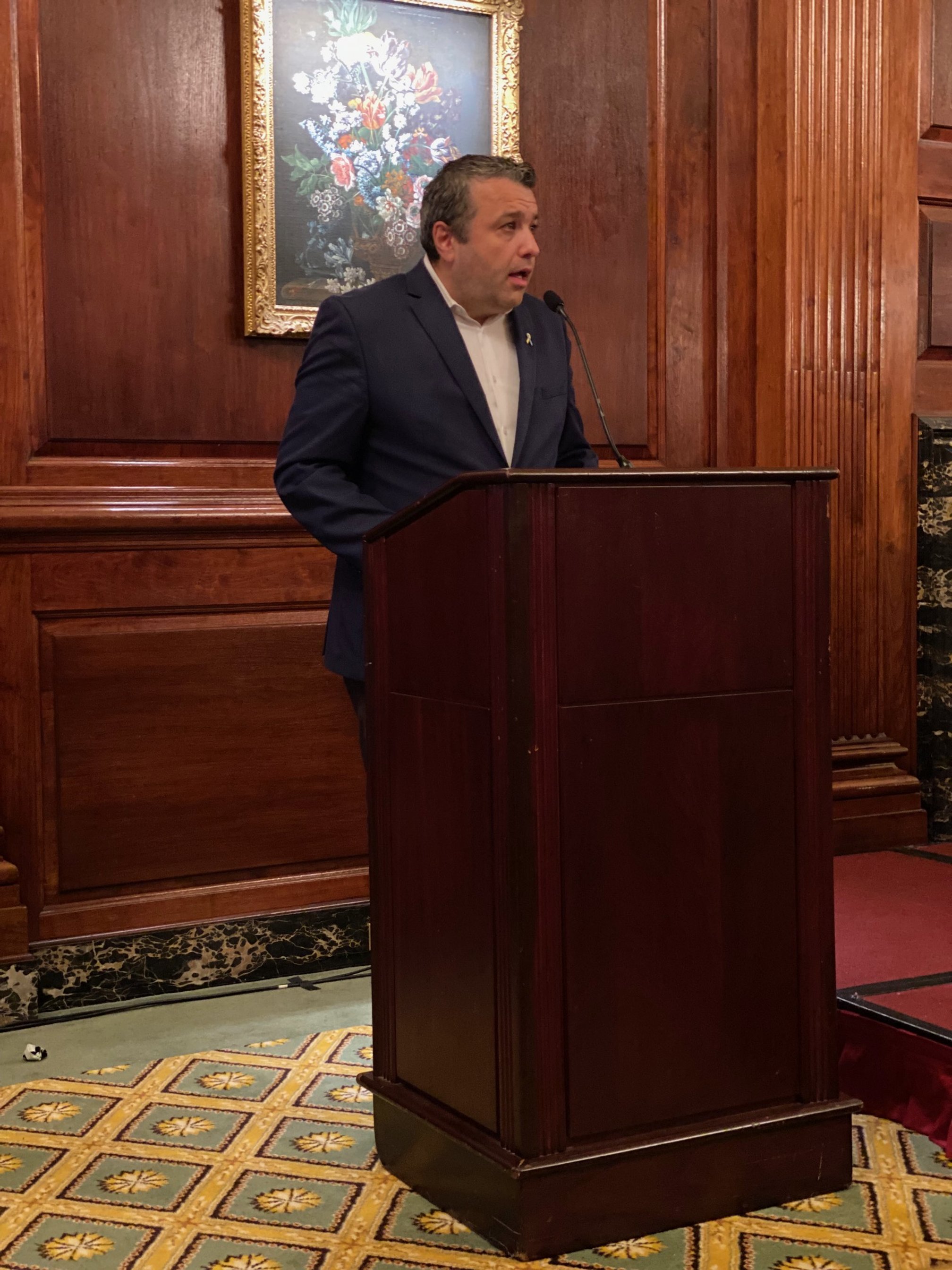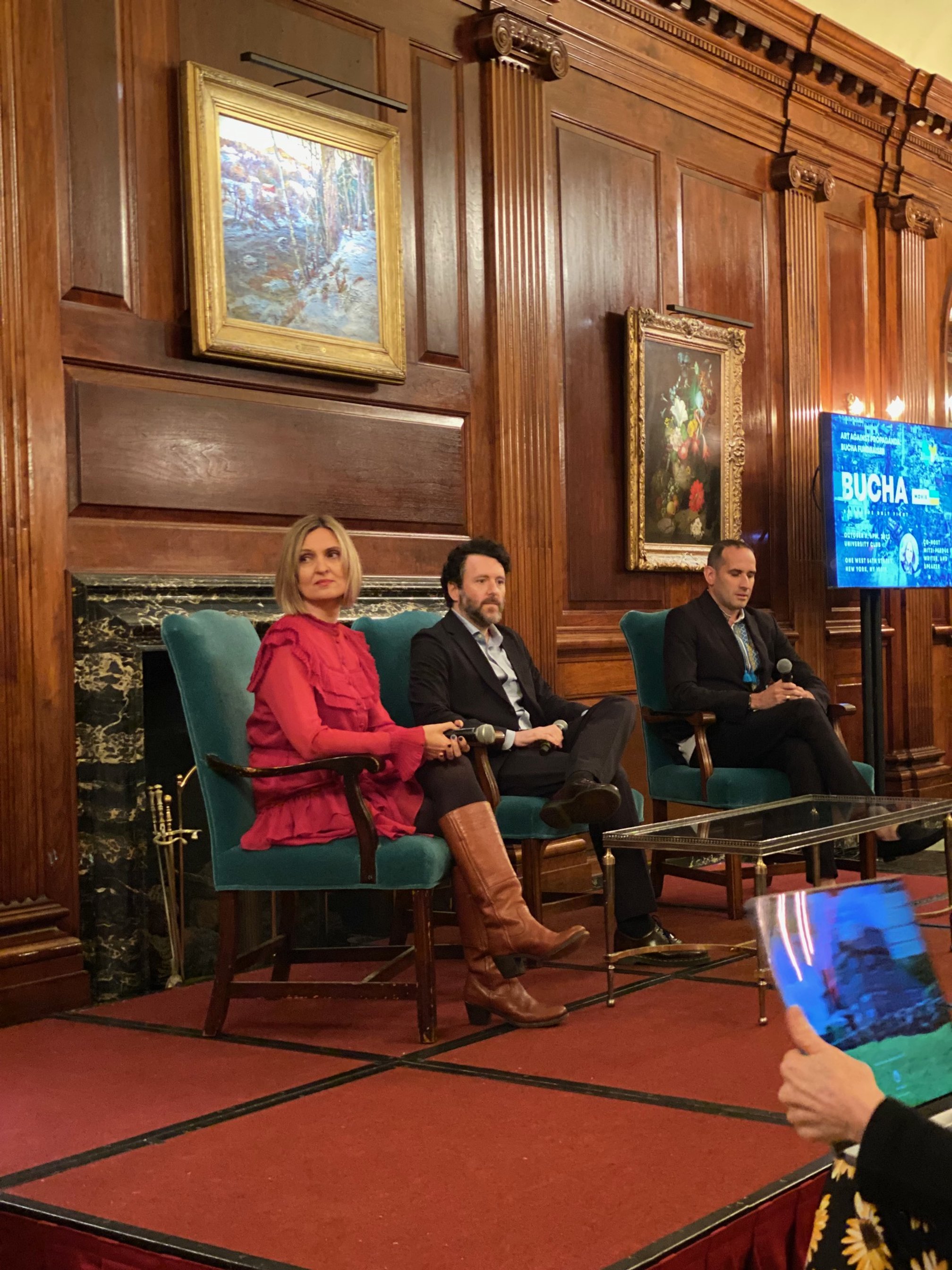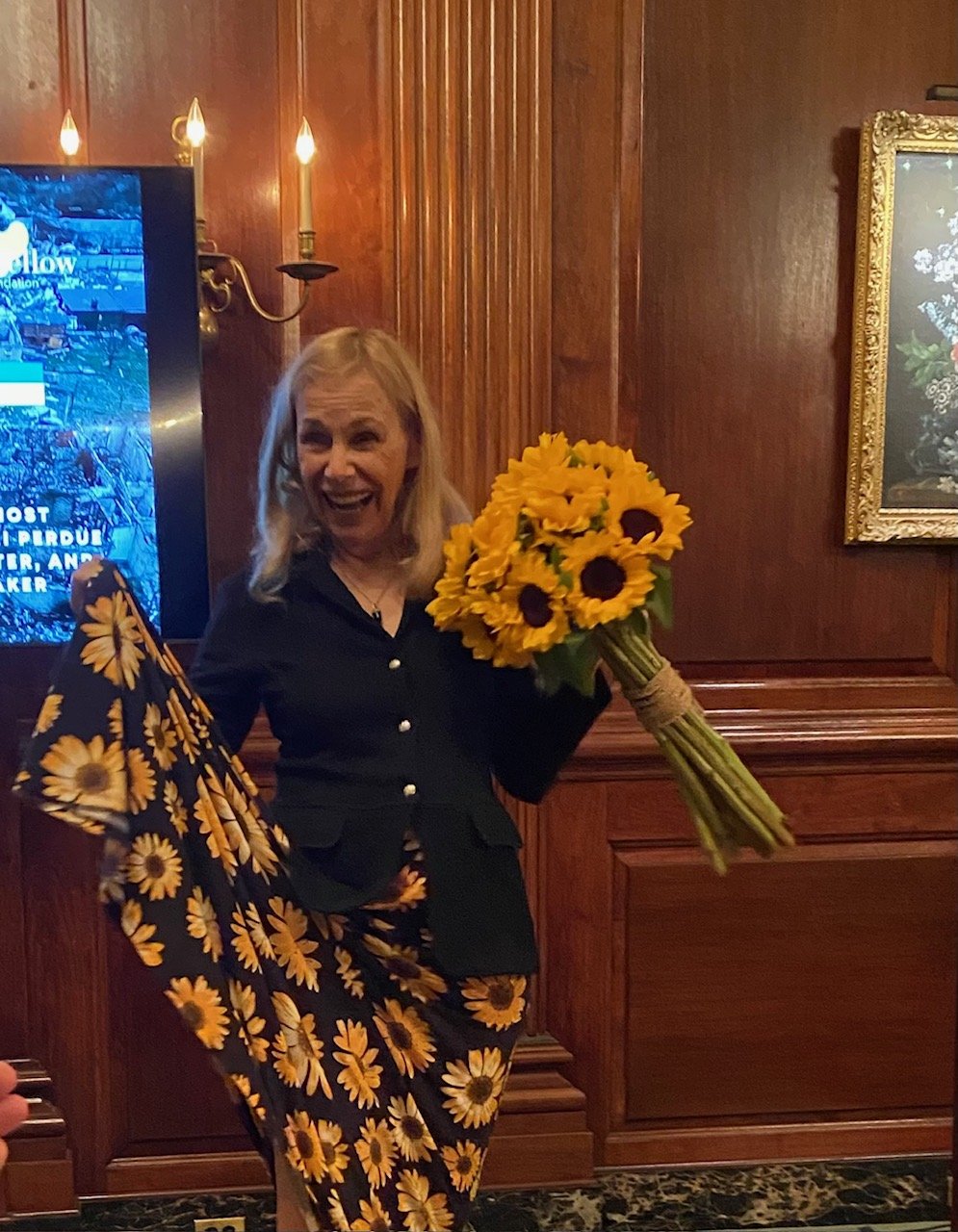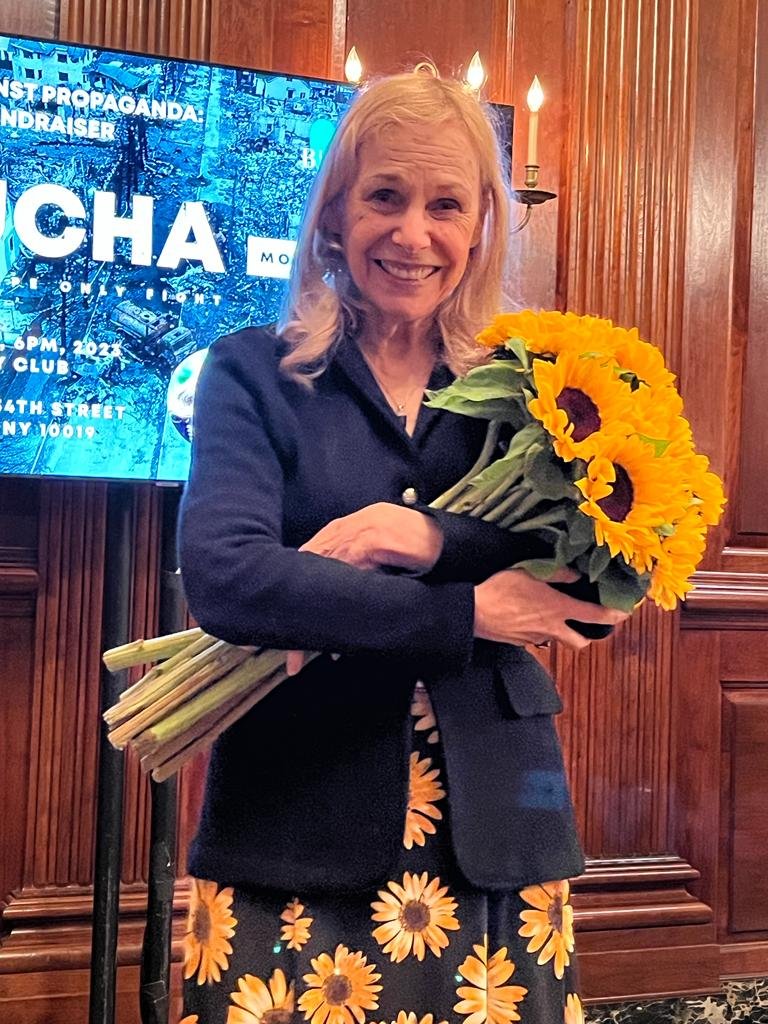The Ukraine War Docudrama "Bucha" Offers Insights into a Determined and Dauntless People
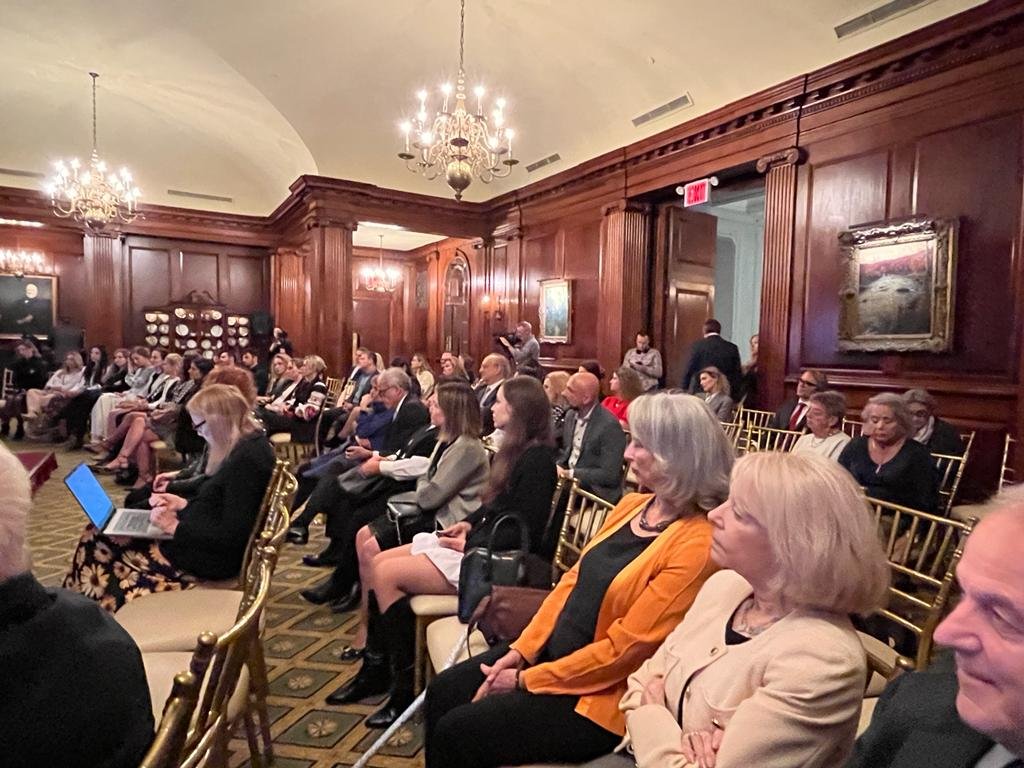
The following is a review of the docudrama Bucha, which was screened at the University Club in New York City last month. Here are the thoughts of AFPC-USA Chairwoman Nancy Prager-Kamel, who attended the screening.
While it is highly unusual to make a movie in a country currently at war, we attended a private showing of a film called Bucha. It was not only a first-hand accounting of the war in this area of Ukraine, but a window into the reality on the ground because it was filmed mostly with a cast of actors consisting of the very civilians who are under constant attack.
While most of our impressions of the war are from accumulated cinematic images, this film is riveting in its documentary-like starkness and reality.
The audience was introduced to the producer and two others who joined in a discussion about the film and the present situation in the Ukraine. These three voices came to the stage to share their insight and experiences:
Journalist Michael Weiss, who has been to Ukraine for top U.S. channel a dozen times during the war, moderated this powerful conversation reflecting pride in the strength of determination that is found in the Ukrainian people.
The producer and screenwriter, Oleksandr Shchur, had worked for president Zelenskyy for 16 years before he left to pursue a career as an independent movie producer. He related the metamorphosis of President Zelenskyy’s career from a comedian to his radical transformation into a highly respectable and formidable voice of the Ukraine. He described Zelenskyy as transforming “from Charlie Chaplin to Winston Churchill.” He traveled through this passage, representing and sharing so many of the Ukrainian’s perspectives. While Putin was believed to be rational and militaristically omnipotent, we see these myths progressively unraveling as this film so graphically illustrates. He pointed out that Russia may now be in a monetary crisis but still is successful in allocating funds to fuel a rampant and viral propaganda campaign throughout the country and their areas of influence.
The third voice that came to the stage to share her insight and experiences was Katya Soldak, who is a journalist, author and documentary filmmaker who is Ukrainian by birth. She is presently the Editorial Director for Forbes Media’s international editions focusing on Eastern Europe and the post-Soviet territories. Soldak grew up in Kharkiv and worked for one of Ukraine's first independent television stations. Soldak, who was compelling in her perspective, opined that the regional as well as international belief was that Putin was rational. The transition of the population’s perspective was personalized by her example of her own family who over the years since the 2014 invasion of Crimea went from considering themselves to be Russian to reassigning their loyalty to Ukraine.
The prevailing propaganda, fueled by vast resources, spread disinformation and misinformation to confuse and divide opinion. Russia may be strained economically, but they find money for propaganda because they have determined how effective it is.
As AFPC-USA’s Mitzi Perdue—who hosted the screening at New York City’s University Club—observed, “Film is a good way to influence people’s emotions [because] if you have a factually based story that connects you with characters, you can reach an audience way beyond the few intellectuals who watch documentaries.”
As a macrocosm, the film captured the intense brutality from the Russian invaders; as a microcosm the movie depicted the fear and horrors but also the bravery of ordinary citizens as they fought to protect family and country. Perdue knows this first-hand as she has made three trips to Ukraine to provide support and use her well respected voice to bring awareness and create compelling reporting. She has witnessed landmine clearance efforts and has made the Herculean effort to personally participate after being trained by The Halo Trust, one of the world’s largest landmine clearing organizations.
The clearing is painstaking as most of the work must be done by hand moving inch by inch. The intent to destroy both property and people is effectively and insidiously carried out with disguised landmines and IEDs— improvised explosive devices—now covering approximately 40% of Ukraine. This renders ineffective the country’s rich and fertile land; fields of wheat that built Ukraine’s reputation as “the bread basket” of the world population.
But with determination and self discipline Ukraine has surpassed our expectations in a myriad of ways. With the vivid image of an aged tractor pulling an abandoned Russian tank, Bucha debunks the myth of omnipotent Russian forces long communicated to the West. Ultimately, the docudrama successfully portrays the citizens of the Ukraine as truly determined and dauntless people. And one could only leave the screening with a wish that God protect these brave people and see justice reign.


